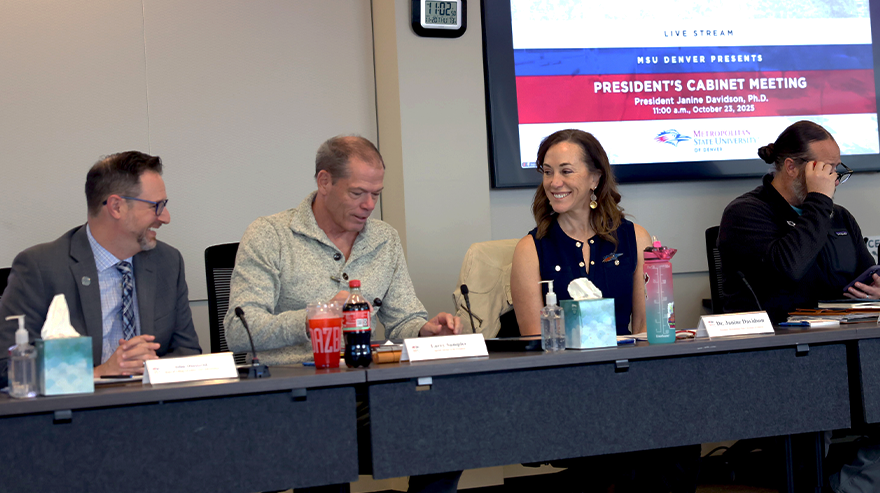Financial Aid fact: Students cannot use Title IV dollars for an online course that does not meet federal criteria for distance education.
For students to benefit from Title IV funds (Pell Grants, Federal Direct Loans, etc.), their institution must meet the U.S. Department of Education’s Regular and Substantive Interactions requirements for online courses.
For this reason, it’s important that Metropolitan State University of Denver faculty members, staff members and administrators are aware of important rules, regulations and expectations for online courses.
What educators need to know
The DOE uses four main criteria to distinguish distance education (which we would call asynchronous online courses) from correspondence courses, with the most pertinent being: “There should be predictable and regular interaction between a student and an instructor, prior to the student’s completion of the course, including the prompt and proactive engagement in substantive interaction with the student when needed, including upon request by the student.”
MSU Denver already incorporates these requirements into the Peer Review for Online Course Excellence Subcommittee (PROCES) Online Course Design Standards. These course-design standards are applicable to courses developed in collaboration with the Center for Teaching, Learning and Design and for instructors working on their own to develop or improve online courses.
The good news is that faculty members who have already completed the Center for Teaching, Learning and Design design process are likely within the Regular and Substantive Interactions rules for online courses.
Not sure how to ensure that a course meets the requirements or how the CTLD can help? Now is an excellent time to connect with online-program-development managers to learn how the Office of Online Learning and the CTLD can support you.
- Faculty members in the College of Business and the College of Liberal Arts and Sciences should contact KC Coburn at [email protected].
- Faculty members in the Schools of Education and Hospitality and the College of Health and Applied Sciences should contact Haley Kline Murphy at [email protected].
The CTLD also provides virtual and in-person drop-in support hours for faculty members to connect with Instructional Design support staff. Instructors looking for direct help with Canvas, Teams, smaller questions about Regular and Substantive Interaction or other tools related to online teaching and learning can find more information about those services on the CTLD’s drop-in-support webpage.








